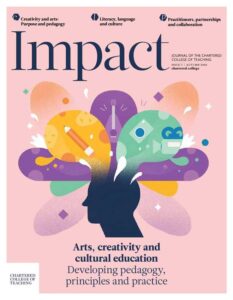We know that participation in structured arts activities can improve learning, attainment, employability, health and social engagement (Cultural Learning Alliance, 2017), and initial training for primary teachers stresses the value of drama and creative approaches to learning. But time pressures lead to less attention directed towards how these translate into classroom practice, leaving teachers lacking in confidence as well as skills. Schools have always been enthusiastic participants in arts projects but too often such projects are short-lived and seen as add-ons to the curriculum. Led by artist practitioners, they are exciting while they last, but leave teachers with little expertise or motivation to replicate or adapt them in future curriculum planning. Paul Hamlyn Foundation’s Teacher Development Fund aims to support the delivery of effective arts-based teaching and learning opportunities in the primary classroom, and to embed learning through the arts in the curriculum. The
Join us or sign in now to view the rest of this page
You're viewing this site as a guest, which only allows you to view a limited amount of content.
To view this page and get access to all our resources, join the Chartered College of Teaching (it's free for trainee teachers and half price for ECTs) or log in if you're already a member.











